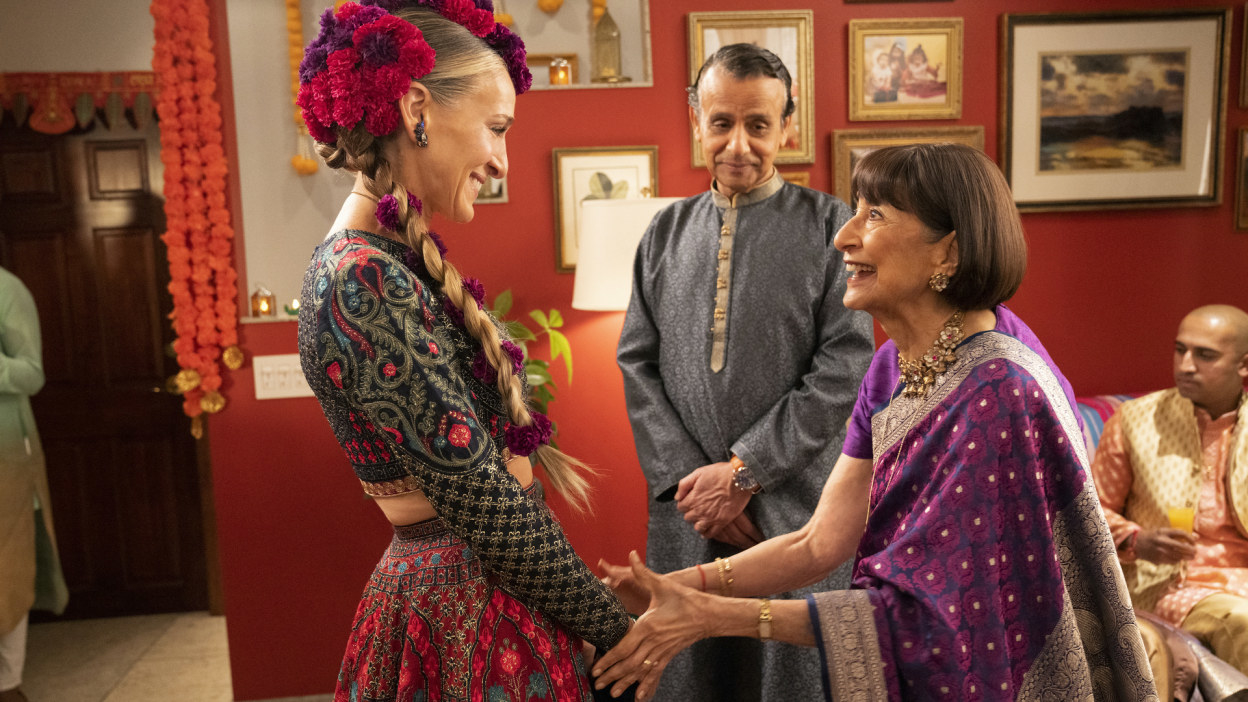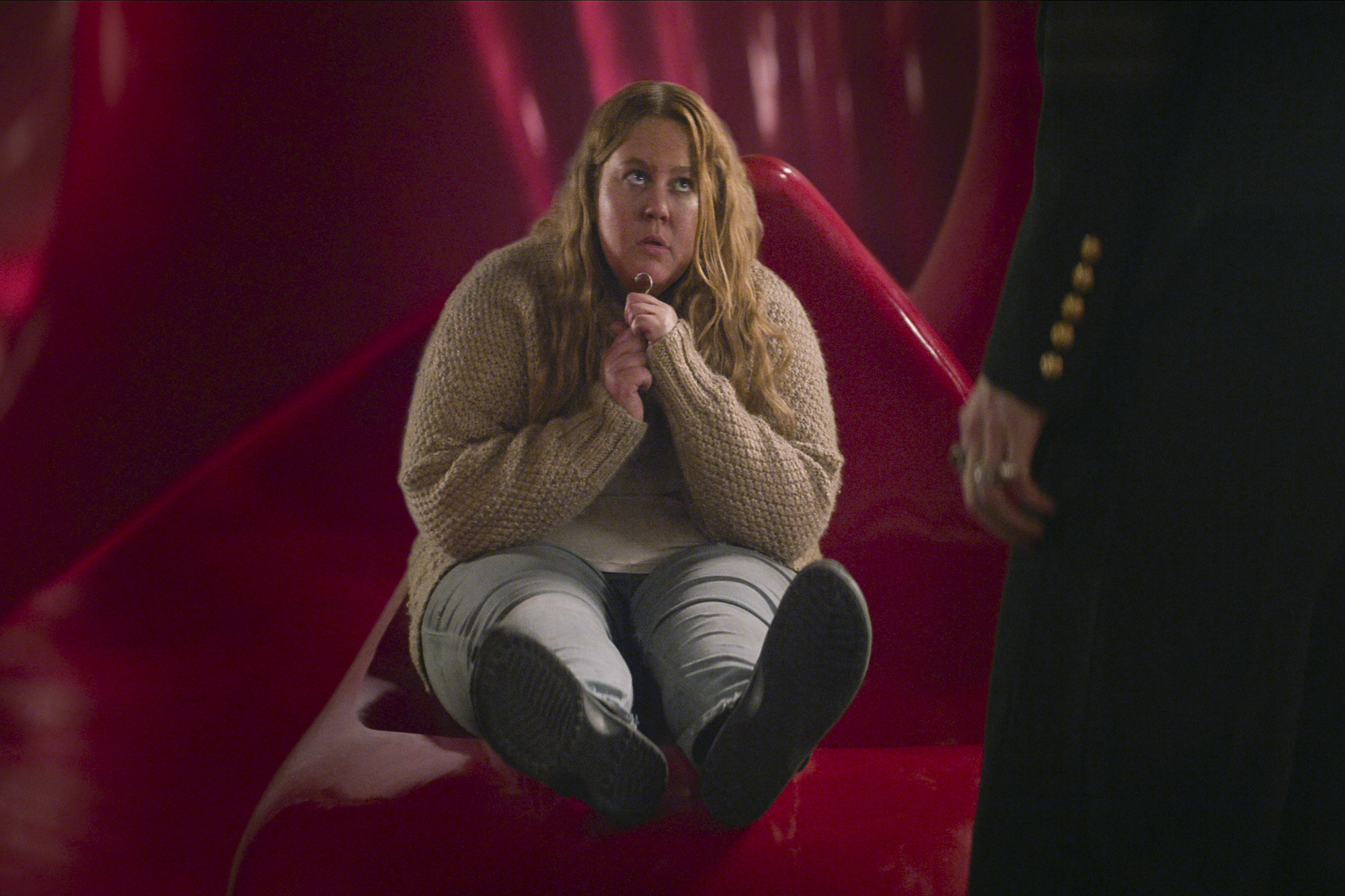First of all, the show does not represent people with larger bodies. It is difficult to believe that a high school is full of thin or traditionally attractive people. Even if we were to look past this blatant lack of body diversity, the fact that the only fat character in the show, Eric, is made the butt of several unnecessary fat jokes cannot be looked past. Lack of representation is one thing. Creating an entire character just to make fun of fat people is all kinds of problematic. Before his weight loss in the most recent season, Hopper’s weight has always been the center point of many poor fat jokes. But it is worth noting that this character did not lose weight to be aesthetically pleasing or to fit into society’s traditional beauty standards. His weight loss is a result of extreme torture and violence inflicted upon him. He was beaten, starved, and tortured to submission… but hey, good for him, he lost weight! However, in the sixth episode, Carrie joined her friend Seema Patel for a Diwali celebration at her parents’ home. It turns out that Seema had made up a boyfriend named Dennis to take some pressure off at family gatherings like this. When Carrie meets her new friend’s parents, Seema’s mother suggests that there might be a reason why they haven’t met Dennis yet. Seema’s mother says to Carrie, “No one can be that busy. I’m beginning to wonder if she’s embarrassed of her boyfriend. Or embarrassed of her parents. So, Carrie, tell. Is it him or us?” When Carrie denies this, she asks, “What is it then? Is Dennis fat?” This suggestion on Seema’s mother’s end insinuates that a person’s weight should be a reason for embarrassment. Historians note that Regency nobility preferred fuller, fatter bodies as it was a sign of wealth and prosperity. The makers have ignored this fact and cater to the modern, beauty standards perpetuated by Hollywood. The fact that Bridgerton embraced historical inaccuracy to bring more modernity and racial diversity to the cast but conveniently chose to stick to outdated (in this case, historically inaccurate also) body standards definitely does not sit well with me. The only fat character in the show, Penelope Featherington, is consistently framed as undesirable by her love interest, her family, and her peers. One particular scene that comes to mind is how after Penelope and Colin share a dance, she overhears him berating some friends for assuming he’d court Penelope at all. “Are you mad? I would never dream of courting Penelope Featherington. Not in your wildest fantasies,” he says. While many deities are hot, thin, and conventionally attractive, Despair is the only fat deity on screen. While Despair is fat in the comics, many other characters were updated for the live-action adaptation. Something about it just doesn’t sit well with me. During the initial talking stages, we hear Abhishek, aka Shake, asking Hope if she worked out and when she replied that she was not a fan, he was immediately turned off by her. It is worth noting that neither is Shake a workout buff nor is he looking for a gym partner. To him, a woman saying that she works out directly translates to her being petite and by extension, attractive. Throughout the season, the weight loss journey of Danielle and Deepti, both of whom had previously lost about ‘70 pounds’ is revisited multiple times. The emphasis on the weight loss narrative of these women — combined with the criminal lack of inclusivity — is extremely unsettling overall. Two instances worth mentioning are when the show makes a joke about a man wearing a “ladies size 14” and when another character remarks that she’s happy that she doesn’t have sex with her “obese husband.” How is this still acceptable in 2022?



